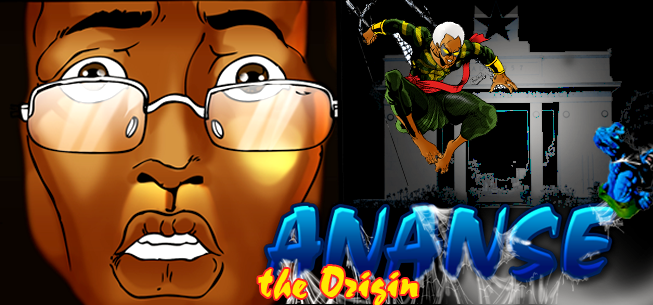SAN FRANCISCO – At GDC today, execs from an African game studio talked about the 55 countries, 3,000 cultures, and myriad languages that make up their “target demographic.”
[aditude-amp id="flyingcarpet" targeting='{"env":"staging","page_type":"article","post_id":705719,"post_type":"story","post_chan":"none","tags":null,"ai":false,"category":"none","all_categories":"dev,games,","session":"C"}']Leti Games’ CEO Eyram Tawia and CTO Wesley Kirinya spoke as part of GDC’s localization summit. As with game technologies around the world, vast improvements have been made since the early 2000s.
Today, web games from Africa’s west coast are becoming a bigger deal, and mobile games are becoming huge around the continent, Kirinya said.
AI Weekly
The must-read newsletter for AI and Big Data industry written by Khari Johnson, Kyle Wiggers, and Seth Colaner.
Included with VentureBeat Insider and VentureBeat VIP memberships.
Above: Leti Games executives CEO Eyram Tawia and CTO Wesley Kirinya speak about African games and the cultural diaspora at GDC 2013.
Hundreds of millions of Africans have no Internet connections at all, the team revealed. But the connections that do exists come in the form of web-connected feature phones and, to a lesser but growing extent, smartphones. “Android is huge,” said Tawia, “so most developers try to learn Java.
Moreover, these mobile devices, which so often serve as a person’s only connection to the web and games, are a huge economic force. In Africa, mobile payments are a $61 billion market (compare that to $30.5 billion in in Europe and North America combined).
“People do not have credit cards; mobile is the preferred way to do payments, from shopping to paying bills,” Kirinya said.
Internet bandwidth is also picking up speed in the continent, he said.
Still, the continent claims only around 10 notable gaming studios, including Ubisoft (Morocco), Luma Arcade, Afroes (Kenya, South Africa), and Kola Studios. Kirinya said more studios are being founded in recent years and months, even in sub-Saharan Africa.
These studios, Kinyara said, focus on developing games for the countries in Africa. But to create titles for such a diverse diaspora is a challenge.
[aditude-amp id="medium1" targeting='{"env":"staging","page_type":"article","post_id":705719,"post_type":"story","post_chan":"none","tags":null,"ai":false,"category":"none","all_categories":"dev,games,","session":"C"}']
“We look at the blocks in the continent,” he said, starting with the obvious first roadblock of language. Colonization means that a handful of European languages were adopted around the continent in the 1700s and 1800s. So building a game in English and French first makes sense, moving into Swahili later, and leaving many other African languages as a long tail to tackle in the long run.
Numbers are generally lower in Africa; the Leti team said that one of the top games in the continent has 6.850 downloads with 20,000 games played every day.
“It’s hard to get Africans to play, because they can’t access the app stores,” Kirinya continued, noting that distribution channels are improving. Partnerships with mobile carriers are likely a more profitable route for local game studios, he said. Other opportunities include paid custom development, which can yield around $5,000 per platform for a mobile game.
Tawia talked a bit about game verticals and genres that are popular in the continent. Many games, he said, are serious in nature, revolving around civic education or career development. Casual and puzzle games are also popular, but games are universally simple.
[aditude-amp id="medium2" targeting='{"env":"staging","page_type":"article","post_id":705719,"post_type":"story","post_chan":"none","tags":null,"ai":false,"category":"none","all_categories":"dev,games,","session":"C"}']
“First-person shooters, action-packed bloody games are yet to come, “ he said.
Game devs, he noted, are overwhelmingly male, with only one woman to every hundred male attendees at a local game development conference.
Outside organizations such as Meltwater and the British Council help to foster and fund entrepreneurship and creatives in the continent. Still, creative talent for graphics and writing remains scarce, Tawia said, and developer resources are limited. As a result, studios often end up training less-qualified people in their own networks rather than cherry-picking a new hire from a pool of highly qualified candidates.
Still, the Leti execs are hopeful for the future of African gaming and developers. They see games as a way to retell local legends and stories, casting them in an attractive, modern light and bringing a new excitement and pride to African mobile users. Imagine a pharaoh as a Marvel-style superhero, for example, or the traditional figure Ananse as a Spandex-clad African version of Spider-Man; Leti did.
[aditude-amp id="medium3" targeting='{"env":"staging","page_type":"article","post_id":705719,"post_type":"story","post_chan":"none","tags":null,"ai":false,"category":"none","all_categories":"dev,games,","session":"C"}']
Image credit: Leti Games
VentureBeat's mission is to be a digital town square for technical decision-makers to gain knowledge about transformative enterprise technology and transact. Learn More

